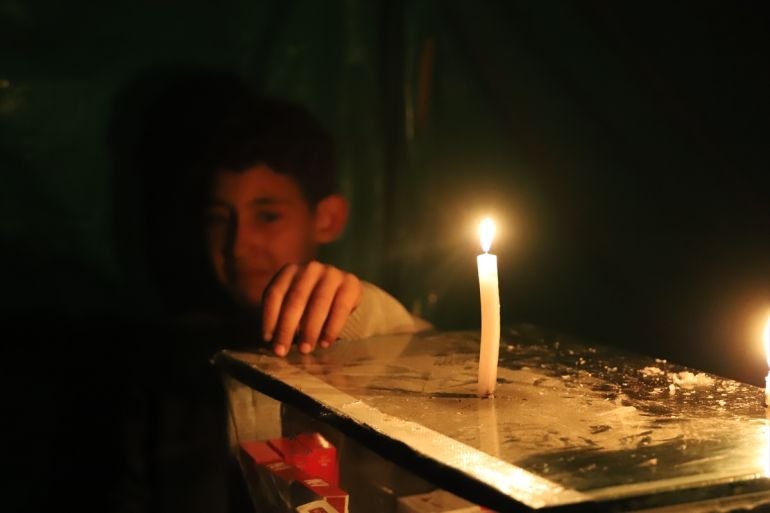[[{“value”:”
Energy crisis adds to survival threats in war-torn Gaza: NGO
The Norwegian Refugee Council says the ‘deliberate denial of energy access’ undermines human needs in Gaza.

Published On 23 Jun 202523 Jun 2025
The lack of reliable energy sources is a key threat to survival in war-torn Gaza, an NGO has warned.
The “deliberate denial of energy access”, like electricity and fuel, “undermines fundamental human needs” in the war-torn enclave, a report published on Monday by the Norwegian Refugee Council (NRC) cautioned. The alert is just the latest regarding the dire humanitarian crisis in Gaza, which is driven by Israel’s blockade amid its war against Hamas.
Recommended Stories
list of 3 itemsend of list
Israel halted the entry of food, water and fuel in March, putting the Palestinian territory’s population at risk of famine.
Electricity supply has also been limited. The United Nations Office for the Coordination of Humanitarian Affairs (OCHA) estimates that 2.1 million people in Gaza have no access to power.
“In Gaza, energy is not about convenience – it’s about survival,” Benedicte Giaever, executive director of NORCAP, which is part of NRC, said.
“When families can’t cook, when hospitals go dark and when water pumps stop running, the consequences are immediate and devastating. The international community must prioritise energy in all humanitarian efforts,” she added.
NRC’s report noted that without power, healthcare facilities in Gaza have been adversely impacted, with emergency surgeries having to be delayed, and ventilators, incubators and dialysis machines unable to function.
Lack of electricity has also impacted Gaza’s desalination facilities, leaving 70 percent of households without access to clean water and forcing households to burn plastic or debris to cook, NRC said.
Advertisement
The humanitarian organisation also highlighted how the lack of power has increased the risks of gender-based violence after dark.
“For too long, the people of Gaza have endured cycles of conflict, blockade, and deprivation. But the current crisis represents a new depth of despair, threatening their immediate survival and their long-term prospects for recovery and development,” NRC’s Secretary General Jan Egeland said, urging the international community to ensure the people in Gaza gain access to energy.
Amid the humanitarian crisis in Gaza, hundreds of people have been killed by the Israeli military as they have sought food and other vital supplies from aid stations set up by the controversial Israel- and US-backed Gaza Humanitarian Foundation (GHF).
In its latest daily update released on Monday, the Health Ministry in Gaza said the bodies of at least 39 people had been brought to hospitals over the previous 24 hours. At least 317 people were wounded, it added.
Since Israel eased its total blockade last month, more than 400 people are reported to have died trying to reach food distribution points.
The UN’s top humanitarian official in the occupied Palestinian territory issued a stark warning on Sunday over the deepening crisis.
“We see a chilling pattern of Israeli forces opening fire on crowds gathering to get food,” said Jonathan Whittall, who heads OCHA in Gaza and the occupied West Bank.
“The attempt to survive is being met with a death sentence.”
“}]]

